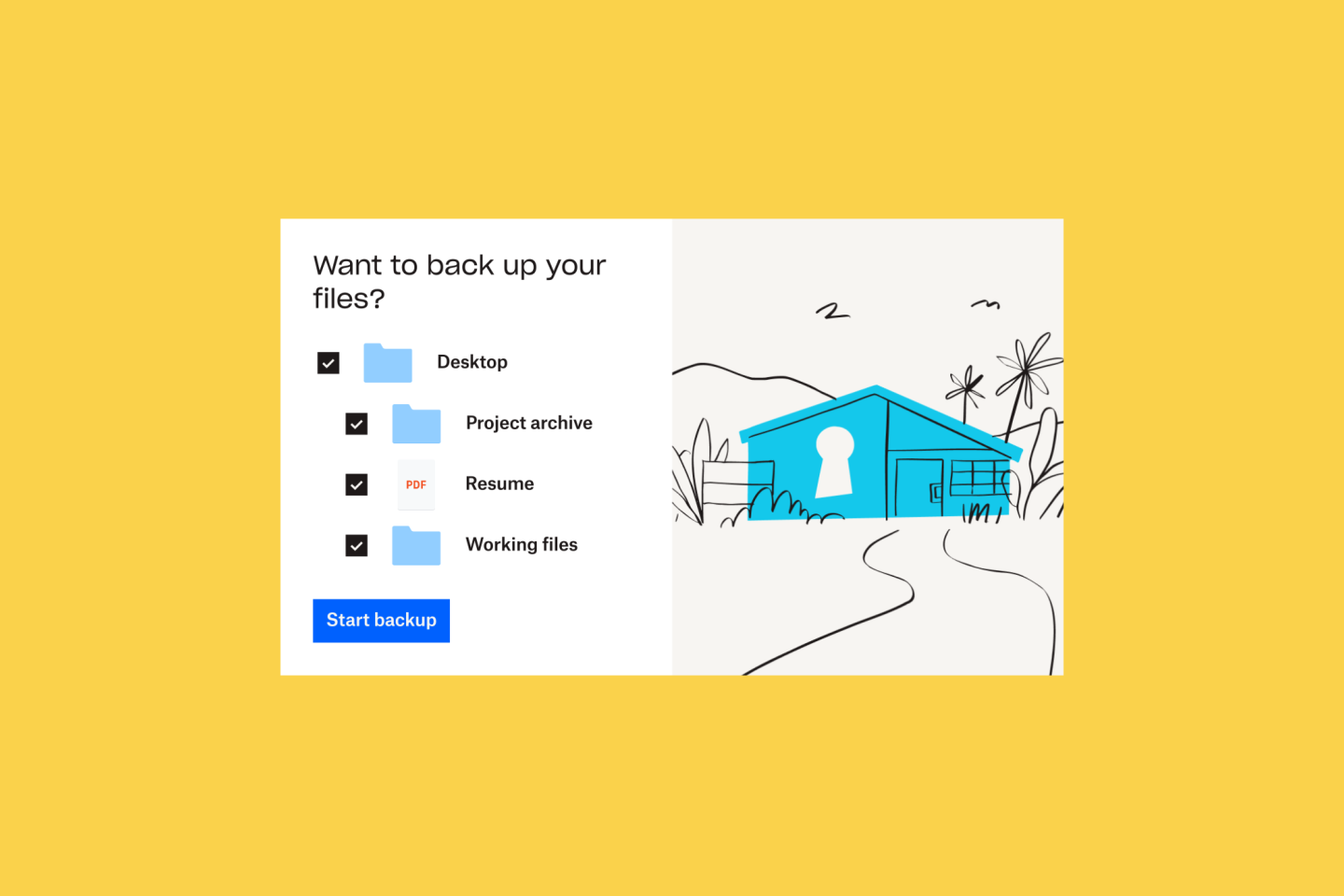Throughout history, new technology has continuously advanced our ability to back up, copy and protect our work.
With the emergence of home computers and hard drive technology in recent decades, the practice of manually backing up important files to an external hard drive became a routine task for many.
Today’s advancements in cloud technology mean that we can store and access our files and data over the internet, using cloud storage. Surely, therefore, we can back up our work with cloud storage too?
Perhaps – but should you?
In this article, we’ll tell you everything you need to know about cloud storage and modern backup solutions so you can decide what works best for your needs and keep your work protected.
What is cloud storage?
Cloud storage is a form of digital storage, which allows you to upload files to remote servers over the internet. Think of it as your computer’s hard drive, except it exists online.
This allows us to store the latest version of files and documents in a safe online location, so they can be accessed by multiple devices from anywhere.
Files stored in the cloud are protected from threats like device failure. So if your laptop stops working suddenly, you’ll be able to continue working on a document as soon as you can access another PC.
Cloud storage also enables remote content collaboration, allowing multiple people to view and work on files simultaneously.

Does cloud storage back up your files?
Most cloud storage platforms, including Dropbox, have a degree of useful backup protection for files. However, files in cloud storage aren’t automatically protected to the degree that they would be with a full backup.
What does this mean in a practical sense? Let’s say you accidentally delete an important work file in your cloud storage – it happens. Dropbox’s built-in protection would keep a copy of that file in a recoverable ‘Trash’ folder for around 30 days after deletion, perfect if you realise your error in time, but frustrating if you don’t notice the missing file until a few months later.
Similarly, version control capabilities vary between different cloud storage platforms and file types. That means if you make a revision to a complex application file stored in cloud storage, replacing the original, there’s no guarantee you can roll those edits back.
Since automatic backup isn’t a core focus of cloud storage software, you might next wonder whether you can manually store backups in the cloud instead.
Can you use cloud storage to manually back up your files?
Considering cloud storage is effectively an internet-based equivalent of a traditional physical hard drive, it’s a fair assumption that you could manually store a backup of your local drive within cloud storage.
While you technically can use cloud storage as a way to back up files on your machine – for instance, by manually uploading them – it’s not the intended use of personal or enterprise cloud storage. As a result, doing this comes with a number of unnecessary disadvantages:
- Time – the time required to routinely carry out the manual process will quickly start to add up
- Space – if you’re storing 100 GB of local data each time you back up, you’ll soon need to start buying more cloud storage space or deleting old backups to create space
- Complexity – it’s a needlessly manual task, with lots of room for error if you miss something or run into internet issues midway through
Thankfully, there is an easier solution that provides all of this and more: automated cloud backup.
What is cloud backup?
Cloud backup is the process of creating a snapshot of your local machine’s files and folders, and storing them in an online archive.
It’s an automated process that keeps all your backups, rather than overwriting each time it runs.
This makes it easy to recover your files and data to any device, even a new one that didn’t contain the files previously.
What are the advantages of using a dedicated cloud backup solution instead of cloud storage?
There are a number of advantages to using an automated and purpose-built cloud backup solution, over cloud storage as a form of backup – for example:
- You can set it to run automatically, removing the need to manually copy files across to a hard drive or cloud storage
- Running out of storage space and needing to delete backups or expand storage, as would be the case with cloud storage, isn’t an issue
- Better for long-term retention of files, folders and documents that you don’t need regular access to, but do need to keep (such as legal documents)
- For work that requires a lot of collaboration on projects, like app development – cloud backup allows users to roll back their system to a previous version of a file/document
With so many benefits, you might be wondering what your options are when it comes to finding a cloud backup platform to suit your needs… and we think we have the answer for you.
Introducing Dropbox Backup
Dropbox Backup is our revolutionary cloud backup solution, designed to make protecting your files and personal data as seamless and simple as possible.

With just a few clicks, you can start automatically backing up your important work at frequent intervals, and recover to any device – whenever you need to.
Accidentally saved over a file and need to roll it back? Simply find your old version in Dropbox Backup and download a copy.
Has a Frappuccino fracas at your local café left your laptop drenched, limp and lifeless? Not to worry – you can restore all your files in a few clicks, as soon as you’ve got a replacement device.
Whatever your need to recover – and for whatever reason – it’s easy with Dropbox Backup.
Take the hassle out of backing up your files, with Dropbox Backup
The days of pouring time and energy into manually backing up your data are long gone. It’s time for a modern solution that enables you to be at your best.
